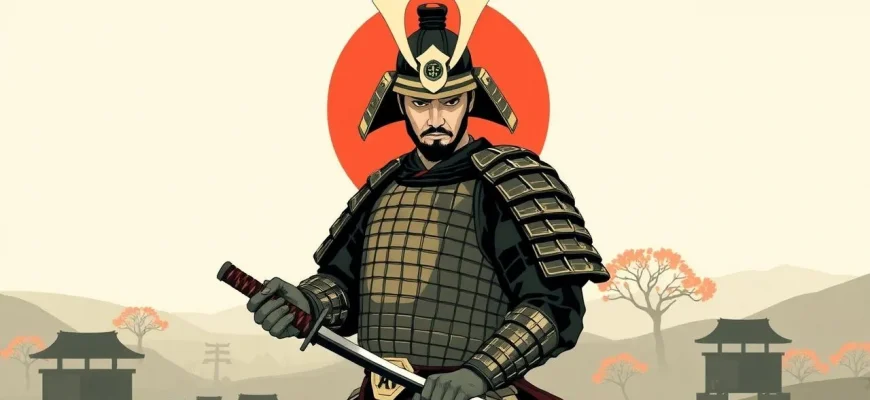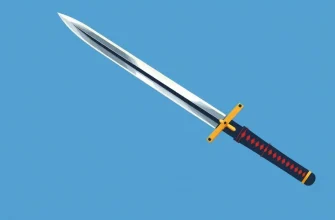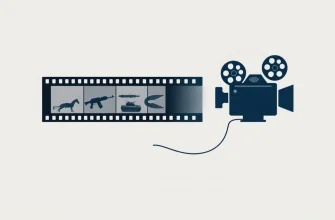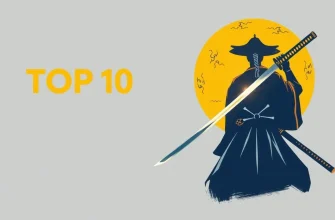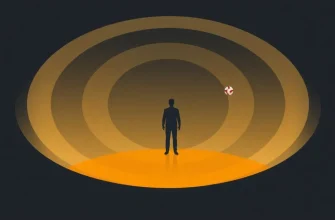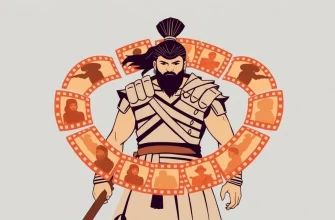Samurai, the noble warriors of feudal Japan, have long captured the imagination of filmmakers and audiences alike. This curated list of 10 biographical films delves into the lives of these iconic figures, offering not just thrilling action but also deep insights into their honor, duty, and the historical context in which they lived. From epic tales of loyalty to intimate portrayals of personal struggle, these films provide a rich tapestry of samurai culture and history, making them invaluable for anyone fascinated by this era.

The Last Samurai (2003)
Description: This epic drama follows an American military officer who becomes embroiled in the Satsuma Rebellion and finds himself aligning with samurai warriors, learning their ways and ultimately embracing their code of honor.
Fact: The film was inspired by the life of Jules Brunet, a French military officer who fought alongside samurai during the Boshin War. Tom Cruise underwent extensive training in swordsmanship and Japanese culture for his role.
 Watch Now
Watch Now 
47 Ronin (2013)
Description: While not strictly a biography, this film is based on the legendary tale of the 47 Ronin, masterless samurai who avenged their lord's death, showcasing themes of loyalty and honor central to samurai ethos.
Fact: The film blends historical events with fantasy elements, including mythical creatures. Keanu Reeves stars as Kai, a half-Japanese outcast who joins the ronin in their quest.
 Watch Now
Watch Now 
Samurai Assassin (1965)
Description: Set in the late Edo period, this film follows a group of samurai plotting to assassinate a corrupt official, highlighting the political intrigue and the samurai's role in it.
Fact: The film was directed by Kihachi Okamoto, known for his samurai films, and it features Toshiro Mifune, a legendary actor often associated with samurai roles.
 30 Days Free
30 Days Free 
Samurai Rebellion (1967)
Description: This film tells the story of a samurai who rebels against his lord to protect his daughter-in-law from an unwanted marriage, highlighting the conflict between personal honor and feudal duty.
Fact: Directed by Masaki Kobayashi, known for his critical views on Japanese society, this film was a critique of the samurai code and the rigid class structure of feudal Japan.
 30 Days Free
30 Days Free 
Harakiri (1962)
Description: A tale of revenge and honor, where a ronin seeks to avenge his son's death by challenging the corrupt practices of a feudal lord's house, showcasing the darker side of samurai life.
Fact: The film was remade in 2011 by Takashi Miike, but the original is celebrated for its stark black-and-white cinematography and its critique of the samurai class.
 30 Days Free
30 Days Free 
The Twilight Samurai (2002)
Description: This film portrays the life of a low-ranking samurai in the late Edo period, focusing on his daily struggles and his unexpected rise to heroism, offering a more grounded view of samurai life.
Fact: The film won numerous awards in Japan, including the Japan Academy Prize for Best Picture, and was praised for its realistic portrayal of samurai life.
 30 Days Free
30 Days Free 
When the Last Sword Is Drawn (2003)
Description: This film explores the life of a Shinsengumi member, revealing the personal sacrifices and internal conflicts of these samurai police, known for their loyalty to the shogunate.
Fact: The film was based on a novel by Jirō Asada, and it delves into the emotional and moral complexities of samurai life beyond the battlefield.
 30 Days Free
30 Days Free 
The Hidden Fortress (1958)
Description: While not a direct biography, this film by Akira Kurosawa tells the story of two peasants who help a general and a princess escape, reflecting themes of loyalty and duty central to samurai narratives.
Fact: This film inspired George Lucas for his Star Wars series, particularly in its narrative structure and character dynamics.
 30 Days Free
30 Days Free 
Samurai Banners (1969)
Description: This epic drama chronicles the life of Yamamoto Kansuke, a strategist who played a crucial role in the unification of Japan under Takeda Shingen, showcasing the strategic mind of a samurai.
Fact: The film is based on a novel by Yasushi Inoue and features a detailed portrayal of military tactics and the political landscape of the Sengoku period.
 30 Days Free
30 Days Free 
The Sword of Doom (1966)
Description: This film follows the life of a ruthless swordsman, exploring themes of morality, redemption, and the dark side of the samurai code.
Fact: The film ends on a cliffhanger, leaving the protagonist's fate unresolved, which was a bold narrative choice at the time.
 30 Days Free
30 Days Free 
